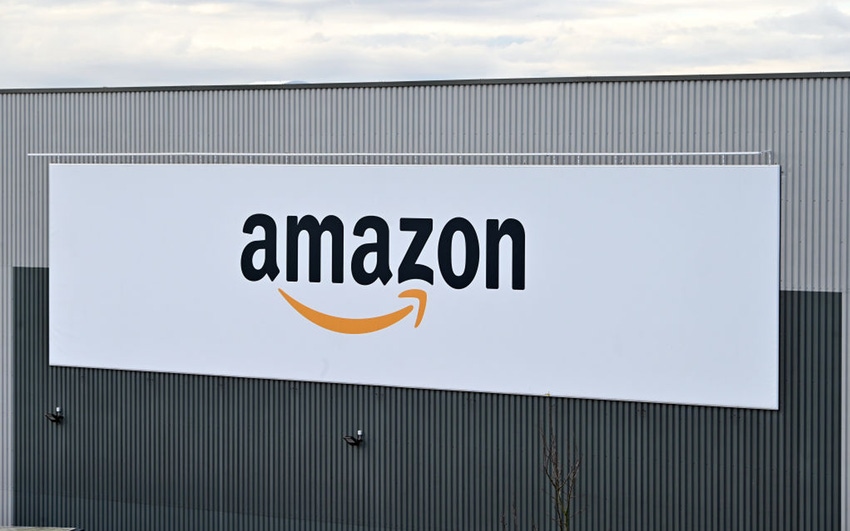Here’s what brands need to know.

Amazon is in the process of tightening quality assurance requirements for supplements sold through its platform. These changes, which the retailer started rolling out over the last few weeks, require supplement brands to submit new documentation proving that products are legal, safe and accurately labeled.
For trade associations like The Council for Responsible Nutrition (CRN), which represents over 100 manufacturers in the dietary supplement space, these changes are seen as long overdue. We spoke with its CEO, Steve Mister, to get its perspective.
“Generally, the Council for Responsible Nutrition and its members are pleased to see Amazon imposing some quality requirements on its platform, but we have reservations about the way it’s being imposed on manufacturers without getting their input,” Mister said. “A number of our members have had concerns about products they’ve seen that are illegal, illegitimate or of questionable quality. Really, Amazon is a bit late in the game to be doing this because there are already a number of problems that exist and illegal products that are being sold online. This needs to be cleaned up.”
CRN isn’t the only organization that’s been concerned about the quality of supplements being sold on the Amazon marketplace. Back in May, supplement brand NOW Foods performed an audit of VMS products purchased on Amazon and found “significant quality failings.” Amazon hasn’t publicly responded to NOW Foods but tightened restrictions on the marketplace followed several months later.
What are the new requirements?
Amazon recently updated its supplement documentation with the new requirements. Supplement brands that want to sell on Amazon will now have to provide:
A certificate of analysis from an ISO/IEC 17025 accredited laboratory for each supplement product.
Detailed product images that clearly show the nutritional panel, batch number and other details.
A letter of guarantee from the manufacturer on official letterhead.
These requirements apply to both new and existing products being sold on Amazon, meaning that brands currently selling supplements on Amazon will need to provide this documentation or risk having their listings suspended.
These new requirements are a good thing for shoppers
These changes needed to happen. Many brick-and-mortar retailers already require similar documentation, and for the most part, shady supplements have been an online problem that affects consumer confidence.
“There are consumers who will not buy supplements from the internet because they are concerned,” Mister said. “They don’t know if what they’re getting is a quality product, and they feel more confident going into their local supermarket or drugstore because there is an assumption that someone is looking at that product before it goes on the shelf.”
By tightening restrictions, Amazon is raising the bar for online supplement sales. Consumers will be able to feel more confident in their online supplement purchases, and that’s a good thing for brands and consumers alike.
Trade associations see potential concerns
While testing is a positive thing, problems could arise from how tests are carried out. Not all tests are created equal, and if performed improperly, testing could end in misleading results and ultimately hurt brands and manufacturers, which is something that concerns trade associations like CRN.
“It sounds very good to say what’s on the label is in the bottle, and to say we’re going to test to make sure that’s the case,” Mister said. But it gets very complicated very quickly because some ingredients may only have testing available from a few laboratories that do not have the ISO 17025 accreditation required. In addition, the requirements may prevent dietary supplement manufacturers with in-house laboratories and significant experience, but without ISO 17025 certification, from testing their ingredients and formulations, or using their laboratory results to develop Certificates of Analysis for Amazon.”
According to Mister, these types of testing issues could be solved with a unified approach that sets the same standards and test processes for both brick-and-mortar and e-commerce, which is something Global Retail and Manufacturer Alliance (GRMA) has already been working on for several years.
“Safety shouldn’t be a point of differentiation,” Mister said. “Consumers should have confidence in the supplements they purchase regardless of where they buy them.”
GRMA is a global nonprofit Certification Program Owner (CPO) with members from most major retailers, manufacturers, trade associations and certification bodies. The alliance was formed to develop an auditing scheme that utilized consensus-based quality system standards for Good Manufacturing Practices (GMPs) through the American National Standards process in several non-food-related industries. Mister from CRN hopes that Amazon will work with the GRMA to unify standards across the industry.
“The GRMA has been working with a number of retailers for about three years now to develop uniform standards, particularly on the brick-and-mortar side of retail,” said Mister. “Ideally, it would be great if Amazon could join those conversations, and then the industry as a whole could move forward with the best possible standards. ”
How brands should respond
Again, these changes are a good thing, and brands should do their best to lean in and provide documentation for products as soon as possible. Amazon seems to be gradually rolling out its new requirements.
Amazon may request immediate action on certain products ahead of others. For brands, quickly providing documentation for immediately affected SKUs is the best way to avoid business interruptions. However, to get ahead of this sudden shift, brands should also take a proactive approach and get documentation ready for their entire Amazon supplement catalog.
A quick breakdown of requirements:
I. Certificate of Analysis
Must contain lot number and manufacture date.
Expiration date must not be in the past (documents with dates in the past will not be reviewed).
Include the name and address of the manufacturer or distributor.
Must be issued by an ISO 17025-certified laboratory.
CoA issued within the last six months.
CoA must contain quantitative analysis to support the active ingredient concentration as claimed on supplement factors pane.
Must include product name.
II. Letter of Guarantee from the Manufacturer (LoG):
Must be printed on your company letterhead.
LoG must contain complete product name as listed on label.
LoG must contain an assurance that the product is manufactured under current Good Manufacturing Practices.
LoG must contain an assurance that only lawful and safe, as defined in section 402(f) of the FD&C Act, ingredients are utilized.
LoG must contain an assurance that concentration of active ingredient(s) as stated on the label and labeling is safe for consumption.
III. Product Packaging Picture (PPP)
Clearly display all sides of the product or its packaging.
A clear image of (1) supplemental or nutritional fact panel, and (2) ingredient list
Must contain name and address of the manufacturer.
Must include product name.
For a full list of requirements, see Amazon’s guidelines.
Austin Wright is a content strategist at Netrush, a leading e-commerce solutions provider for premium natural products brands.
Have some big ideas or thoughts to share related to the natural products industry? We'd love to hear and publish your opinions in the newhope.com IdeaXchange. Check out our submission guidelines.
About the Author(s)
You May Also Like




